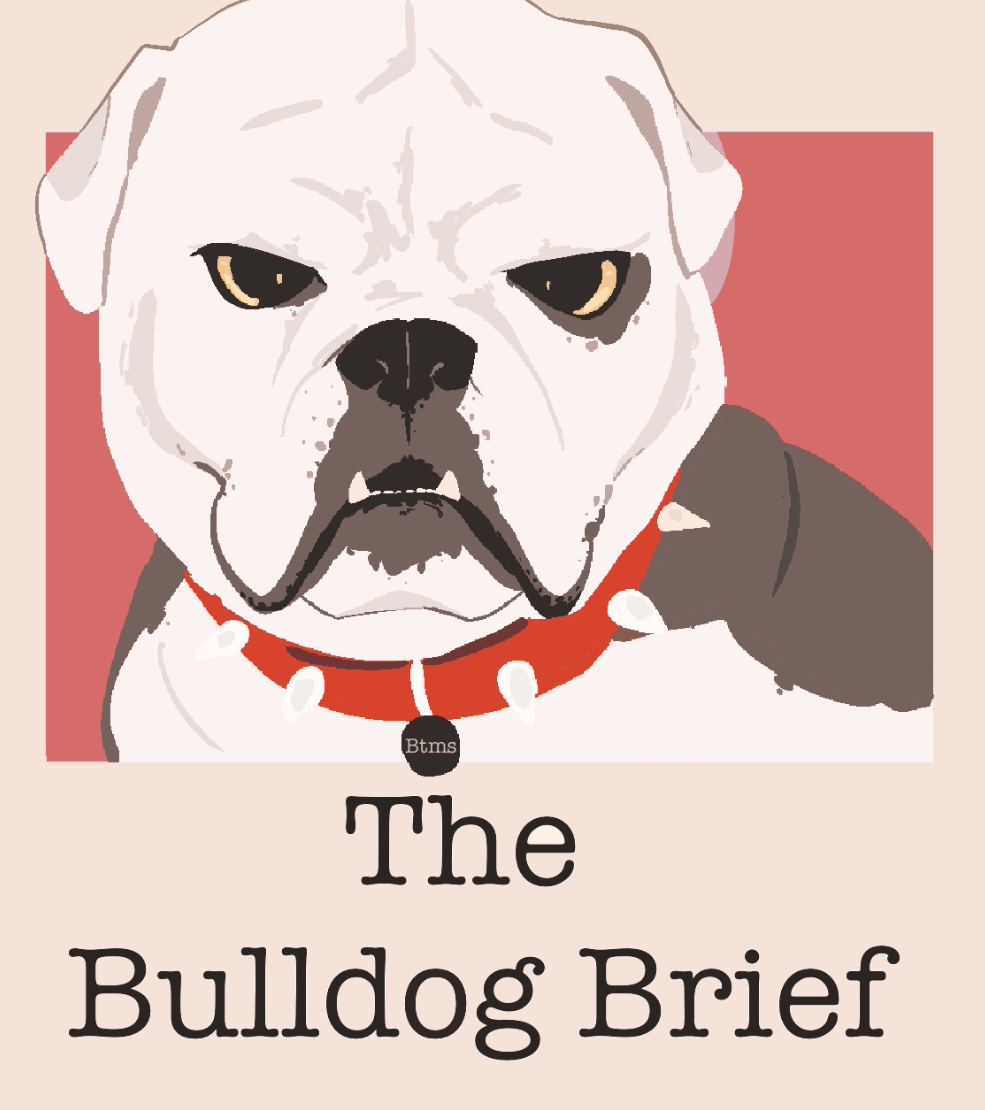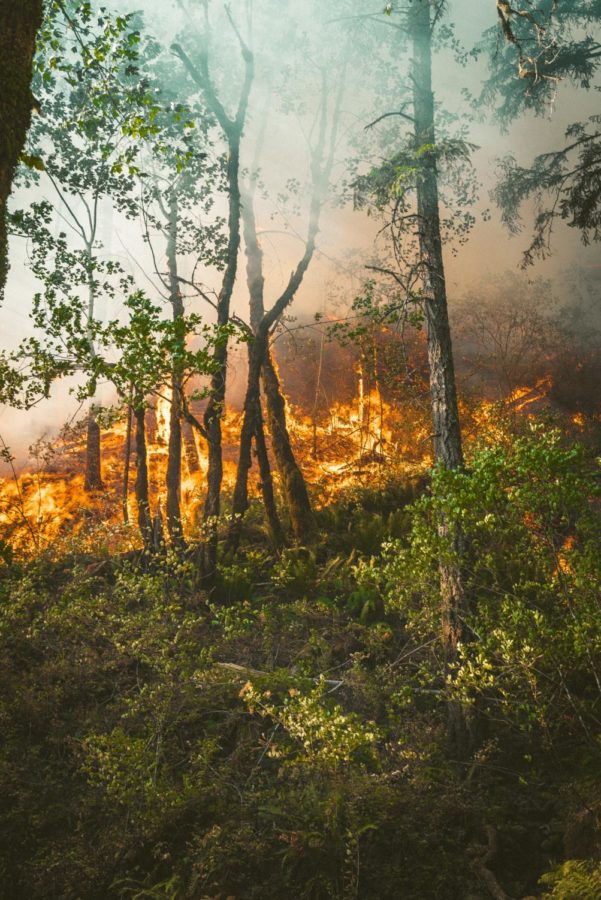Slowly Smoking ー Wildfires
What should I do when I encounter one and how do they occur?
A fire in Portland, Oregon
Kids are coughing, complaining that their throats hurt, and keep talking about the ashes in the air. Oh, it’s just horrible.
— Interviewee #1
An Introduction to Wildfires
Have you smelled the distinct smell of smoke in the past few days? If you’ve attended school for the past couple of weeks, chances are YES! You probably know this by now, but this is happening currently because of wildfires around the U.S. Wildfires are fires that happen in areas with a lot of vegetation, or just plants in general, although most of us envision them as forest fires (as in trees). They are usually credited as heavily destructive and unpredictable, destroying homes, trees, and sometimes the lives of people and animals. In order to educate you guys on the topic, I’m going to cover how they happen, the signs of one, and what to do in case there is one in your area.
How do They Occur?
Some of these fires are man-made, while some are created by natural causes. The official website for wildfires in the U.S. states that 85 percent of wildfires are caused by humans, which leaves 15 percent for natural causes, which can be things like lightning, general dryness, and other weather and climate issues. For man-made causes, there is a whole array of things that could cause a fire. It could be simple mishaps, like forgetting to put out a campfire, or malfunctioning equipment, while some of it could be malicious, like intentional arson with remote-controlled bombs or a simple matchstick. Others could simply just be stupid, like dropping a cigarette, firing a gun, or doing fireworks in the forest. Special cases often involve light reflection off a glass object or some other highly-reflective surface. (ex. Magnifying glasses can reflect light, and if done for long enough, it can cause heat build-up and create a fire)
What’s the Difference Between Arson and a Natural Occurring Fire?
The official government website on wildfires states that the origins of a fire are differentiated based on what the starting point of the fire looks like. They state that fires started by arson are usually started by a pile of flammable items, a device that automatically explodes/burns. Splashes of flammable liquid (gasoline, acetone, and a variety of alcohol) are also a possibility, as some of you may have seen how horrible a gas station on fire looks like. The website also states that these ‘starters’ are pretty noticeable, but most evidence is gone, and that’s why only around 10-20% of arsonists are actually found, and even less, convicted of their crimes. (around 5-2%!)
What are the Signs of a Fire?
As some of you have noticed, and as I’ve mentioned at the beginning of the article, smoke is one of the first signs that there is an active fire. There are two parts to smoke: the smell and the hazy filter it puts our surroundings in. You may see waves in your vision (like a hot summer day!) or an overall blurry, white-ish sheen around you. This is because of smoke, which is just a large group of unburned particles due to the lack of oxygen. Something you might also notice is the ashes. If you’re close enough to the site of the fire, you might see little flurries of greyish matter in the sky, in your hair, or maybe on your stuff. That is ash, and it is produced when there is not enough oxygen to burn everything, and parts of an object (in this case, most likely a plant of some kind) are left behind because of incomplete combustion. If you are close enough, you also may feel the heat waves from the fire. Last but not least, (and this is really obvious but) the sight of a fire. If you see a fire, just run. Don’t even look back, you know for sure that there is a fire brewing in those forests. (Make sure you report it and call the fire station as soon as you know that you’re safe :/ )
What do I do if a Wildfire is Close?
Some of you may have even received an alert from your iPhone in the past few weeks to ‘run away!’ from the bolt creek fire. (thankfully, most people who received this message were told later that it was an error in the system) But what if this was real? What would you do? To answer this question, you can quickly read the contents of a standard alert to those who are close to the fire. In its contents, there are usually instructions to leave your info on the front door of your house, pack some of your belonging, and drive away with your family members to safety. Why do they say this? Well, they ask you to leave your info (such as your phone number, email, or any other means of contact) written on a piece of paper stuck to your front door so authorities can contact you when you can return to your house, and it is safe. Also, it is important not to return to your house before they tell you to because things such as smoke inhalation and other things could be damaging to your long-term health. After that, they tell you to pack your belongings and other major supplies in your car. Now, you may be asking, “what should I pack?” I’ve got a whole list for you, don’t you worry!
Major tip: Make sure you have an emergency fire bucket/bag with these necessities that you can take and run with in case of a quickly approaching fire
Things to pack might include:
- A Fire Blanket (good for putting out fires, also good as a blanket)
- Protein Bars/Food (make sure they’re really densely packed with proteins and different nutrients, you want to carry a lighter load for more nutrition)
- Money (of course)
- Printed Documents of Yourself for Documentation (maybe your driver’s license or id) just in case you forget to grab your wallet
- Spare key for your House and/or Safe
- Clothes
- Water, or at least a Water Bottle (if you live in a very foresty area, get a filter just in case you need to go into survival mode)
- A Tent, if you live in a very Nature-Esque area
- A Mask (You don’t want to be breathing in smoke that could harm you. Preferably N-95 that can block out particles)
- Battery pack, and/or generator (depending on how much time you have to flee) You need electricity for charging phones, and other devices
- Emergency flares depending on where you live
Finally, the alerts usually ask you to get away from the area, preferably by some sort of vehicle. It will usually include instructions on where to go, or at least the direction you should be heading towards. These are obviously there for you to survive without getting sniped by a patch of fire. As you flee, make sure to check on alerts and updates at least every hour or so, just in case you need to head out further, or there’s some big news.
What are Some Fires Around us?
Bolt Creek fire – The Bolt Creek fire is a wildfire that is currently burning in Washington. If you smell smoke in the air or see the hazy atmosphere around you, most likely, it’s because of this. The cause is still undetermined, and it has burnt around 11,500 acres as of 9/28/22.
Cedar Creek fire – The Cedar Creek fire in Oregon is a wildfire that was started by lightning with a combination of other natural factors. It has burned around 115,500 acres and has caused around 40 people to be injured or have respiratory problems due to smoke, and of course, the fire.
Mosquito fire – The Mosquito fire in California is a wildfire that has burnt around 76,500 acres. However most of it has been contained, so it has not been causing too many issues as of lately.
A Quick Lesson on AQI
AQI is a unit that we use to measure the quality of our air, and it stands for Air Quality Index. AQI has a scale to be able to tell how good or bad the air quality is, a good tip being that zones change around every 50 AQI. Every zone is indicated by a color, much like a temperature scale in weather reports. Green means perfectly fine, with an AQI of 1-50, while yellow means moderate with 50-100 AQI, and anything above that being some shade of red meaning unhealthy to dangerous. This means that virtually anything that is over 100 isn’t really a good thing. What’s crazy is that in our state, our monthly high (Sept 2022) was 290 AQI! That’s really horrible! Another state had it way worst though…. Oregon had a monthly high of around 500! Even so, most of our cities were in the top 10 ranking for the worst AQI in the U.S. The official website for AQI advises people to close their windows, avoid going outside, and run an air purifier in their houses. After all, smoke inhalation can cause serious damage in the long term, and can have lasting effects on those who have weaker immune systems.
The Wildfire’s Effect on Students at our School
Interviewee #1:
“What do you think about the effects the fires are having on us and around the school?”
“I think that it’s becoming really serious now. Kids with asthma and other respiratory problems are literally suffering, and even for normal students, some of them are complaining about dry throats and involuntary coughing. I honestly think that if things are this bad, the school should pause for a bit, or make more protocols to make things safer. I mean, just a bit ago our air was deemed unhealthy, yet the classes all keep their windows and doors open.”
Interviewee #2:
“What do you think about the effects the fires are having on us and around the school?”
“Seeing and smelling the smoke around the school makes me kinda….I don’t know…. uncomfy. I can smell it wherever I go, and I can’t even see my friends that well because the smoke is literally like a filter on my whole vision.”
Wrap up
In conclusion, the fires are pretty intense right now, to the point where even the students at school have been affected. These fires really take a toll on the members of our country, and more people should be educated on this topic
Credits:
https://unsplash.com/photos/4FjjmIdV7fE?utm_source=unsplash&utm_medium=referral&utm_content=creditShareLink Photo by Karsten Winegeart on Unsplash
https://www.nps.gov/articles/wildfire-causes-and-evaluation.htm#:~:text=Nearly%2085%20percent*%20of%20wildland,and%20intentional%20acts%20of%20arson.&text=Lightning%20is%20one%20of%20the%20two%20natural%20causes%20of%20fires.
https://www.interfire.org/res_file/nfpaj_ar.asphttps://inciweb.nwcg.gov/incident/8417/
https://www.fire.ca.gov/incidents/2022/9/6/mosquito-fire/
https://energyeducation.ca/encyclopedia/Ash#:~:text=Incomplete%20combustion%20means%20that%20there,soot%2C%20smoke%2C%20and%20ash.
Meet me, Mika H.
Hi, my name is Mika, and I am an 8th grader at BTMS. I like math and reading webtoons and manga. I also like judging and tasting food,...



